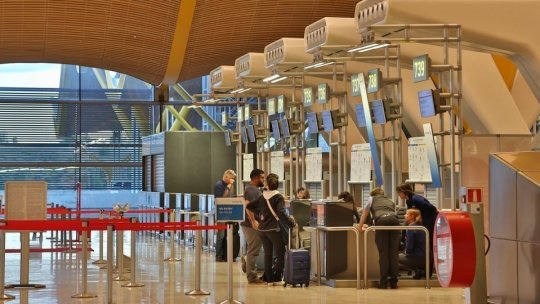Financial Press Review, 17 January
Articles from the Ziarul Financiar, the Curierul Naţional, the Bursa, the Săptămâna Financiară and the Capital.

Articol de Dinu Dragomirescu, 17 Ianuarie 2011, 20:13
The Ziarul Financiar opens its first page with ‘The Business of the decade on the Stock Exchange’. ‘The listing of the Property Fund on the stock exchange will be the New Year’s test for the hungry capital market(...), but it will be also be the test for the economy, namely the ability to regain the attention of investors and investments whether they are local or from abroad.’
‘In the last three years, over 52 percent of the shares of the Property Fund have changed their owners, and in 2010, the transactions with the shares of the Property Fund soared.’ If the share price climbs after the listing over 0.6 lei, most buyers will record a profit. The losers are the former owner who received the shares in exchange of the lands and homes confiscated by the communist regime and who eventually sold their shares well below their initial value (of 0.1 million).
Under the first page headline: ‘What will happen to the credit this year?’, the Curierul Naţional reveals opinions according to whom: ‘2011 will the year the credit comes to normality.’ ‘Since March, together with the inflation the interest rates will also decrease and thus the credit may revive’, the newspaper quoted the financial analyst Dragoş Cabat.
The Ziarul Financiar reveals in an article that ‘The bankers postpone the adjustment of the commissions.’ Some of the banks ‘still charge examination fees expressed as a percent of the credit value, although the law on consumer loan came into force late last year requires them to charge the customers of a fixed amount regardless of the loan. ‘
The daily newspaper Bursa published an article under the heading ‘Bucharest needs to punish more severely the frauds with funds of the European Union’.
The newspaper quotes the European Commissioner for taxation and customs, audit and anti-fraud, Algirdas Semeta, who at the end of a visit in Romania that ‘there was a stagnation of the efforts to combat the fraud in the last 18 months’.
According to the Commissioner, quoted by the newspaper, ‘in 73 percent of the cases submitted by the European Anti-Fraud Office (OLAF) between 2008 and 2010, the Romanian authorities have taken action.(...) The recovery of the funds illegally used is low,’ he further noted.
Under the heading ‘The Schengen deferral keeps the trucks in line at the borders’, the Săptămâna Financiară reveals that ‘the acceptance of Romania into the Schengen area would reduce the waiting times at the border for the cargo coming from Romania and would boost trade. (...) However, the Romanian economy would not fully reap these benefits because of its internal problems. The most serious issue is of the road due to which the average speed of a truck in Romania is that of half the legal speed in EU.’
The Capital magazine published an article entitled ‘The IMF restrictions accepted only until the elections’ and from which we learn that ‘by a coincidence or not, the future IMF agreement will be signed only for a year, and not for two, just like the actual one. Thu, monitoring the IMF is due to end in April next year, just before the local campaign.’
Translated by: Iulia Florescu
MA Student, MTTLC Student, Bucharest University













